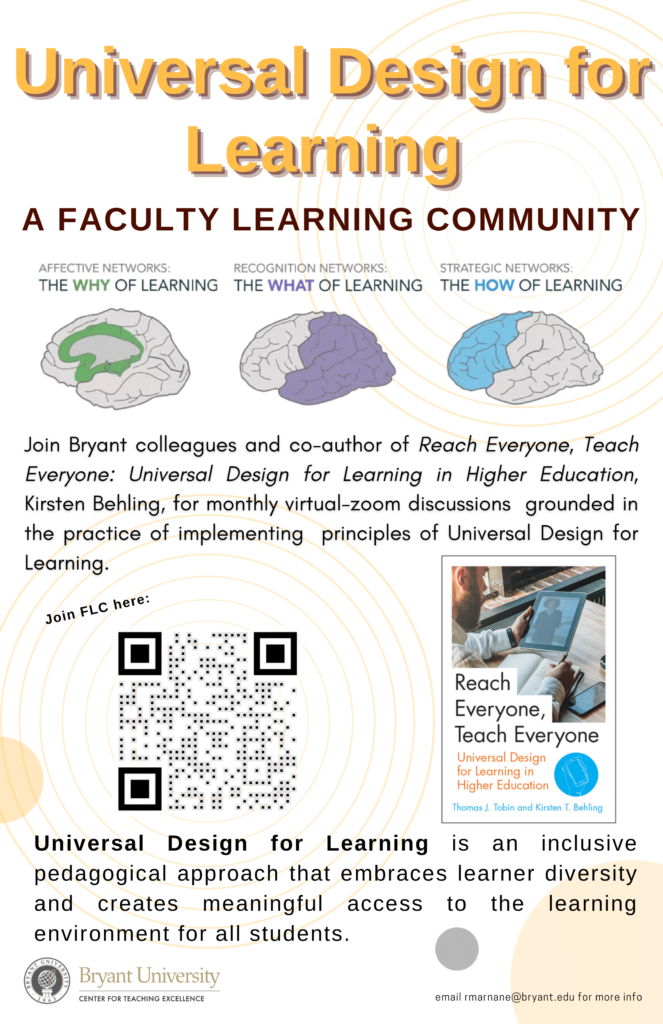Universal Design for Learning (UDL) is an educational framework based on research in the learning sciences, including cognitive neuroscience, that guides the development of flexible learning environments and learning spaces that can accommodate individual learning differences.
Universal Design for learning is a set of principles that provide teachers with a structure to develop instructions to meet the diverse needs of all learners.
The UDL framework, first defined by David H. Rose, Ed.D. of the Harvard Graduate School of Education and the Center for Applied Special Technology (CAST) in the 1990s, calls for creating curriculum from the outset that provides:
- Multiple means of representation to give learners various ways of acquiring information and knowledge,
- Multiple means of expression to provide learners alternatives for demonstrating what they know, and
- Multiple means of engagement to tap into learners’ interests, challenge them appropriately, and motivate them to learn.
Curriculum, as defined in the UDL literature, has four parts: instructional goals, methods, materials, and assessments. UDL is intended to increase access to learning by reducing physical, cognitive, intellectual, and organizational barriers to learning, as well as other obstacles. UDL principles also lend themselves to implementing inclusionary practices in the classroom.
In the Spring of 2022, Bryant welcomed Kirsten Behling to talk at Bryant about Universal Design for Learning. A recording of her presentation, titled “Universal Design for Learning: An Easy-to-Implement Instructional Approach”, along with other resources can be found below:

